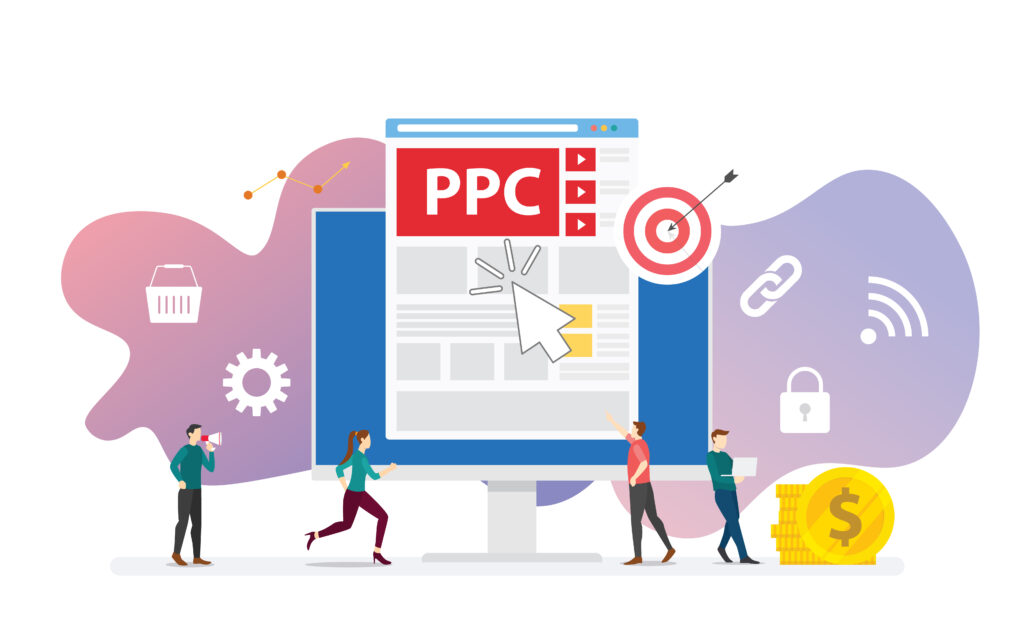
When done correctly, B2B pay-per-click (PPC) campaigns can generate significant results for a B2B organization. Whether it is increased traffic to the website, a boost in form completions or downloads of an asset, B2B PPC campaigns have the potential to be incredibly beneficial. The big question is, are you prepared to create and execute a PPC campaign? If you are not prepared, starting a PPC campaign can lead to disappointing results and limited, if any, ROI. To help streamline the process of putting together a successful PPC campaign, we put together four of the top questions teams should answer before launching. If any of these questions remain unanswered, it might be time to reevaluate utilizing PPC. For the most promising results, ensure your organization has answers to these four questions.
1. Why PPC?
Out of all the marketing activities that organizations can execute, why use PPC? Is it because other marketing activities have failed to generate the results that you are looking for? Is the goal of your campaign lead generation? Increased website traffic? Whatever the reason is that your team is using PPC, there needs to be strong data and evidence behind the decision. Paid campaigns in marketing, especially for smaller organizations, can be a huge hit to budgets if not managed effectively. PPC can be an incredibly valuable tool in B2B marketing. Ensure that PPC is the best decision possible. Not sure if it is the right choice? Check out these questions to evaluate things further.
2. What will be considered a conversion?
The goals that you have for PPC determine what a conversion will be when it comes to measurement and analytics. There are multiple ways you can measure conversions per your industry for both short- and long-term goals. For some campaigns, filling out a “Contact Me” or “Download Now” form is considered a conversion, as it represents a lead ready for immediate contact or nurturing. Perhaps it is purchasing a particular eBook from your website or registering for an upcoming live or online event. Whatever the conversion may be, make sure you define it clearly for each B2B PPC campaign you want to run. It is important to set these conversions up correctly and communicate it effectively in the ad copy by directing visitors directly to the offer that will achieve your conversion.
Measure your conversions with the right metrics! Uncover the best metrics to track and analyze along with the tools to use in our Marketing Metrics eBook. Download now.
3. Is your website ready for conversions?
Setting up your website for conversions is one of the most important components of a B2B PPC campaign. Driving the prospects to your landing page or website is only half the bottle. Getting them to understand what they are looking at and the offer is the other half. It should be simple to navigate the page, understand the offer and execute the action to complete a conversion. To create a landing page to ensure maximum conversions consider these simple tips:
- Remove the navigation bar. This keeps the user focused on the content and task at hand while keeping them from navigating to other parts of the website. If the navigation bar is kept, someone can go to your page, which you paid for them to visit and go elsewhere, which can impact budget and reporting metrics.
- Keep the form short. If using a form, reduce the form fields as much as possible. Obtain all key information but do not add fields that do not matter to your contacts.
- Reduce the scroll on the page. The more work the user must do to read the information and potentially submit a form, the less likely they are going to convert. Keep the information to the point and easy to read.
4. What do the budget and timeline look like?
Budget and time are two of the key drivers behind a B2B PPC campaign. From a budget standpoint, consider what is needed to make an impact and generate the desired results. For Google Ads, you can use as little or as much budget as you would like, even something such as $1 per day. But will this give you the results you are looking for? On LinkedIn Ads, there is a minimum budget, but the rest is up to you. In most instances, the more money put in, the more reach a campaign has, but it does not necessarily mean obtaining the best possible results. Setting a budget of $100 a day is great, but if there are zero conversions, the budget quickly goes to waste, driving cost per conversion and cost per click numbers extremely high. Consider the timing as well. It is best to let the campaign run, evaluate results and then adjust the budget, content or other campaign components as needed.
With goals set, defined conversions and confidence that your website or landing page drives viewers to convert, you are ready to get started!
Looking for even more expert B2B advice on creating and executing successful B2B PPC campaigns? Contact us today or request a free marketing consultation! We’ve helped hundreds of clients with their PPC campaigns.
There are no comments